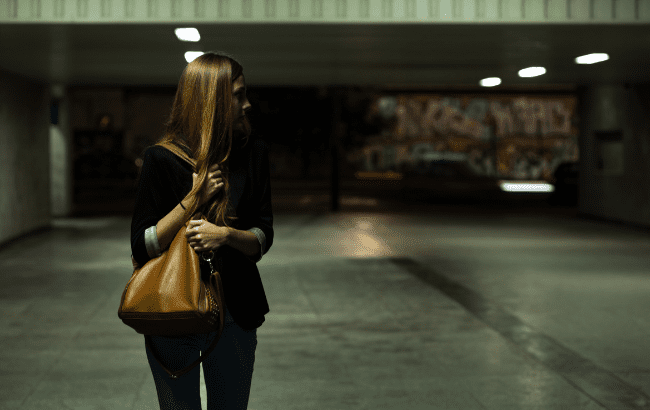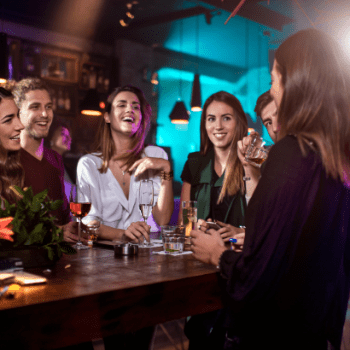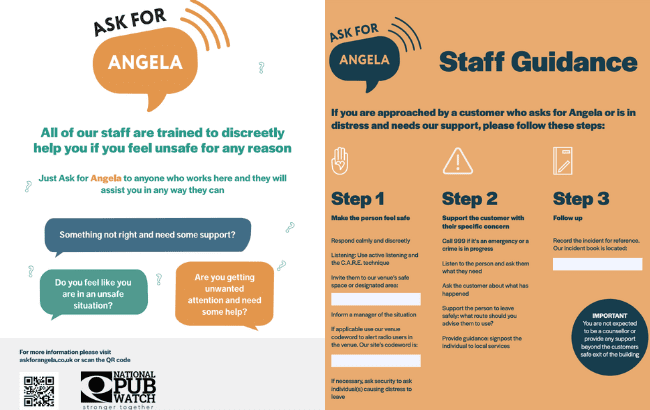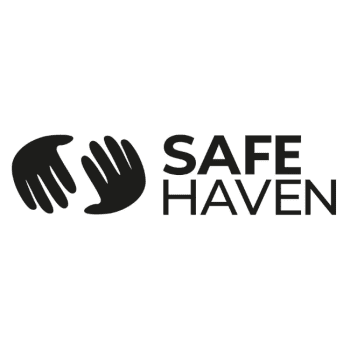How can venues help keep women safe at night?
By Georgie CollinsThe Women’s Night Safety Charter (WNSC), led by the mayor of London, has grown by 500% over three years, and aims to enhance women’s safety in the English capital through simple pledges, such as nominating safety champions, improving communication, and designing safer spaces.

The WNSC is part of the mayor’s Tackling Violence Against Women and Girls Strategy, and London’s commitment to the UN Women Safe Cities and Safe Public Spaces global initiative.
In March, Sarah Walker, project manager for the WNSC, spoke at an International Women’s Day event for members of the drinks industry hosted by Celebrate Her. She explained that the charter is formed by a series of pledges that any organisation operating at night can sign up to, in a bid to help women – both consumers and staff – feel safe when in the city at night.
The pledges include: nominating a champion in your organisation who actively promotes women’s night safety; demonstrating to staff and customers that your organisation takes women’s safety at night seriously, for example through a communications campaign; reminding customers and staff that London is safe, but telling them what to do if they experience harassment when working, going out or travelling; encourage reporting by victims and bystanders as part of your communications campaign; train staff to ensure that all women who report are believed; train staff to ensure that all reports are recorded and responded to; and design public spaces and work places to make them safer for women at night.
Walker notes that the first of these pledges is easy, because it is simply nominating someone within the business or organisation to be a go-to person for the cause. “The other pledges are quite straightforward,” she said. “But the hardest one out of all those pledges, we’ve been told, is pledge seven – designing your public spaces and workplaces to make them safe for women at night.
“Obviously, if you don’t own your premises, you can’t start making structural changes and things like that. But in venues where you have some black spots that staff can’t physically see, you could put mirrors in there. Speak to your customers, because they’re telling you where they feel unsafe. Where you may think they feel unsafe isn’t necessarily the right place, so do engage with your customers on that.”

She clarifies that this also applies to public spaces. “Talk to the council if they own those areas outside where you’re operating. The street furniture and things like that may not be placed in the right places. They might be easy for people to hide behind, to jump out as perpetrators and things like that. Talk to your councils to make them understand where things need to be changed.”
The WNSC has worked with the Good Night Out Campaign to produce a toolkit, which offers simple ideas, inspiration, information and resources to help organisations meet the seven pledges. It advises on courses of action, possible changes and how organisations can upskill staff.
Hundreds of organisations across London have already signed up to the charter, including hotels, councils, cultural venues, hubs, bars and nightclubs, late-night shops, the police and security companies, transport operators, hospitals, and gyms.
Walker explained: “We’re having to remember to keep both your staff and consumers safe. Staff are really important. They get forgotten about a lot of the time. So that’s one thing that we really like to highlight.”
Tackling misogynistic behaviour
The WNSC hosts summits, as well as monthly Lunch and Learn sessions, for all signatories. In addition, it provides an online resource hub where information can be downloaded.
The WNSC also works closely with the Susie Lamplugh Trust – an organisation that aims to reduce the risk of violence and aggression through campaigning, education and support – as well as White Ribbon, the leading charity in England and Wales that engages with men and boys to prevent violence against women and girls.
“There’s access to further training opportunities around vulnerability. We deliver the Susie Lamplugh Trust monthly bystander intervention training. That’s a really great piece of training for anyone to do. It’s just taking those small steps to change that situation.”
In addition, Walker stresses the importance of involving men in the conversation. “We had our first big event for 2025 [in February], which was in Shoreditch. Half the room was men. It was really good to see, because we need them to understand what it is we feel unsafe about, what we need to do to go out and behaviours we’re trying to change.”
Walker shares that the WNSC promotes the mayor’s award-winning ‘Have a Word’ campaign (shared below). This launched in 2022 and is still used today. It seeks to combat male violence against women in London by encouraging men to take accountability and challenge misogynistic behaviour. Walker shared that 85% of men who viewed the video said they would have called out misogynistic behaviour.
However, in March, it was reported that misogynistic behaviour is on the rise across the UK. This is in spite of a second campaign launched in 2023 called ‘Maaate’, which aims to help men and boys confidently step in when they witness language and behaviour towards women and girls that crosses the line.
Safer Business Network
Walker primarily works for the Safer Business Network. This is a community interest company that has helped thousands of businesses beat crime, violence and antisocial behaviour and reduce its negative impact on our towns and city centres for more than a decade.
The network offers welfare and vulnerability engagement training, which teaches people what vulnerability is, what it may look like, and how to stop a situation from escalating. This training covers spiking, including drink spiking, needle spiking and the newer form. Walker explains this involves mixing over-the-counter medicines that are legal to buy and pouring them into a drink. “That one’s gaining popularity,” she says. “It gives a purple haze to your drink, so when you’re out about, be aware of that one.”

In addition, the vulnerability training touches on Ask for Angela. This is a not-for-profit scheme that aims to ensure that anyone feeling vulnerable or unsafe is able to get support.
According to the scheme, 71% of women of all ages in the UK have experienced some form of sexual harassment in a public space. This number rises to 86% among 18- to 24-year-olds. Only 3% of 18- to 24-year-olds reported not having experienced any of the types of harassment listed.
The scheme trains staff in vulnerability management and what to do when someone asks for Angela. The trained member of staff will understand the person needs help and be able to respond in an appropriate, discreet way. They might call security, lead the person to a safe space, or help them leave the premises unnoticed.
The training supports venues to keep their customers safe, which in turn improves perceptions of safety and patronage in the night-time economy. A recent YouGov survey on feelings of safety in the night-time economy found that 49% of people and 63% of women would be more likely to visit a venue that had measures in place to improve women’s safety.
 Safe Havens
Safe Havens
An additional safety measure offered by the Safer Business Network is Safe Havens. These are defined as a practical way for businesses to let people know that support is easily available if they need help. Premises such as shops, cafes, pubs, libraries, and other places of interest can register to be a Safe Haven.
“There are around 100 now across London,” Walker says, explaining that when you see a Safe Havens logo on a building, you can go in and charge your mobile, for example. “If they can supply you with water, they will do; if you’re being followed, you can ask for help. If your mobile is completely dead, you can use their phones, if they’ve got them at the front desk. So it’s any field, it’s any organisation that’s open during their operating times that you can go in and use them, day and night.”
Walker shares that every Tesco in the UK is a Safe Haven. “They don’t advertise it, but they are. So if you’re travelling around, you can always go to a Tesco for help. They’re a place of temporary refuge for a person to facilitate their onward journey.”
Staff training will be offered for free to organisations and venues willing to become Safe Havens, which will enable employees to feel confident in dealing with the public.
While the Safe Haven cannot provide specialist interventions, staff can contact emergency services or signpost to specialist services where needed.
Related news
Double Dutch on strategic growth and VC funding for women

 Safe Havens
Safe Havens